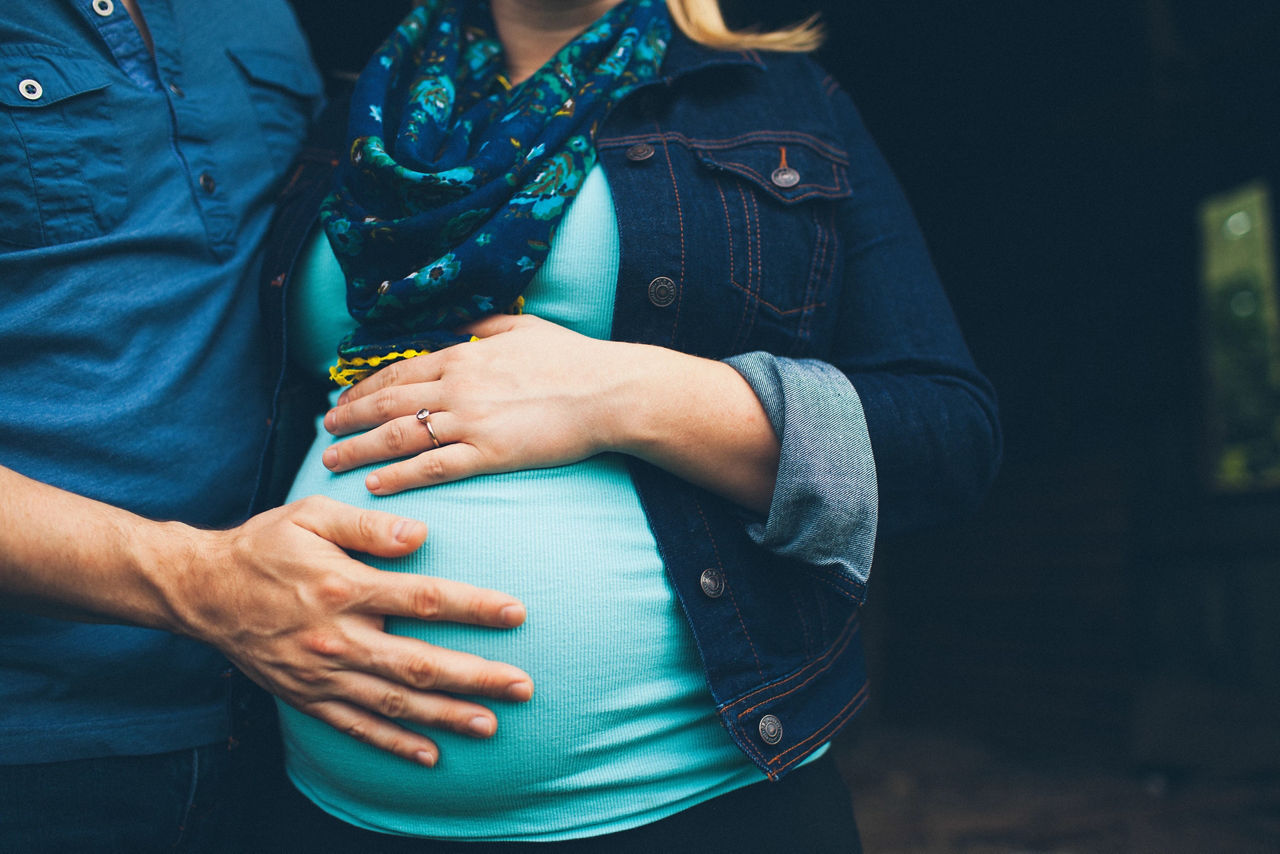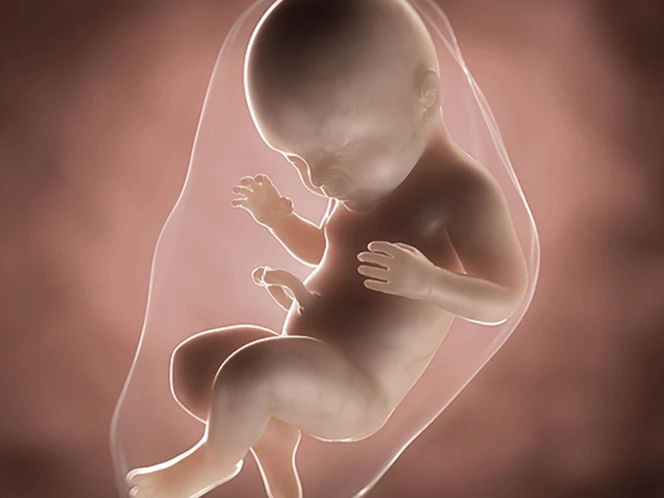By the time you're 40 weeks pregnant, your baby is fully developed and ready for birth. Their nutrition will then be reliant on your own diet via your breast milk, so it’s important to maintain the healthy eating habits that have been beneficial throughout pregnancy. Learn why foods rich in LCPs (long chain polyunsaturated fatty acids) are an essential part of a healthy breastfeeding diet, and how to get them.
40 weeks pregnant

Explore pregnancy stages week by week
All good things...

Week 40: Ready to say hello?
Over the last 40 weeks, your baby has grown from a single cell to a well-developed, unique and beautiful little person with a world of potential within them.
By the time they are born, your baby will measure around 37cm from their head to their bottom1 and weigh somewhere close to the average birth weight of 7lb 7oz, with 15% of their body made up of fat1. Over 70 reflexes1 are already functioning and responsive at birth, and your baby is already able to recognise your voice from the months spent listening from within your womb1.
The placenta will detach from your uterus as your baby is born, often needing a relatively gentle push to help it out sometime after your baby. The job of this fleshy, oval-shaped organ and the umbilical cord will soon be over as your baby starts to breathe independently1.
If your baby isn’t showing signs of wanting to emerge into the world yet, try not to be disheartened. Roughly 50% of pregnancies continue beyond 40 weeks. Many healthcare professionals will allow you to continue until 42 weeks if you are having a normal, healthy pregnancy2.
At birth, your baby already recognises your voice.
LCPs: Support for your baby’s brain and visual development
Long chain polyunsaturated fatty acids (known collectively as LCPs) are a group of fats found in certain foods. There are a number of different LCPs including AA (Omega 6) and DHA (Omega 3), which your body passes to your baby during pregnancy and while breastfeeding, through your breastmilk.
DHA in particular supports your baby’s healthy brain development during pregnancy. After pregnancy, DHA continues to contribute to healthy brain and eye development in breastfed babies throughout the first year3.
When you are breastfeeding you should try to include an extra daily dose of 200mg of DHA3. Oily fish like mackerel, sardines, fresh tuna and salmon is a good source of DHA. You can continue to enjoy up to two portions of oily fish a week when you are breastfeeding which should provide sufficient DHA to meet your needs.
If you don’t like the idea of eating oily fish, be sure to include some other sources of Omega 3 fats in your diet such as nuts, seeds, dark green vegetables, rapeseed oil, wholegrain cereals and soya products4. While these foods provide Omega 3 fats, your body is not very efficient at converting these into DHA4.
DHA supplements are available but it’s a good idea to talk to your midwife or GP to check if a supplement is necessary.
Your body provides LCPs through your breast milk, so it’s important to include them in your breastfeeding diet.
Next Steps
Try these Omega 3-rich snacks and small meals:
- Mackerel on a slice of wholegrain toast
- Grilled salmon with steamed vegetables
- Salmon fishcakes
- A bowl of wholegrain cereal
- A handful of walnuts and seeds
related articles
Read More

Get in touch with our Careline experts
Our nutritionists and feeding advisors are always on hand to talk about feeding your baby. So if you have a question, just get in touch
- Deans A. Your New Pregnancy Bible, The experts’ guide to pregnancy and early parenthood. 4th ed. London: Carroll & Brown Publishers Limited, 2013. p.51.
- Murkoff H, Mazel S. What to Expect When You’re Expecting. 4th ed. London: Simon & Schuster Ltd, 2009. p. 338.
- Commission Regulation (EU) No 440/2011 of 6 May 2011 on the authorisation and refusal of authorisation of certain health claims made on foods and referring to children’s development and health. OJ L 119, 7.5.2011, pp. 4–9
- Gandy J (Ed). Manual of Dietetic Practice, 5th Edition. Wiley Blackwell. UK. 2014 p.759
Last reviewed: 9th September 2016





